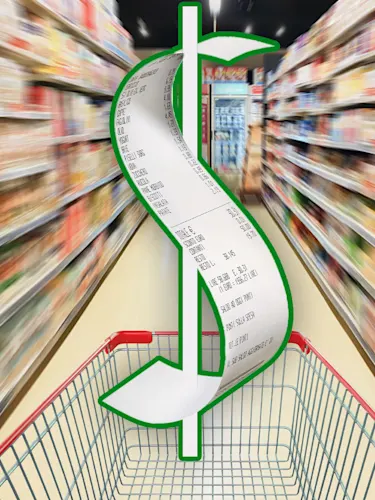If you could go back in time and give your teenage self some financial advice, what would you say?
Most of us have picked up both good and bad money habits over the years. But from the mistakes and regrets we've experienced, what have we really learned - and how can we help younger Kiwis avoid making the same ones?
Rova’s 'Where’s My Money' podcast surveyed 865 New Zealanders over 25, asking them what advice they would give their 16-year-old selves.
It also revealed some eye-opening stats - three-quarters of respondents (76%) feel stressed about money, and 26% admit they’re “drowning in debt.” Clearly, money issues weigh heavy on a lot of us.
“Money should be a tool, not a stress,” economist Shamubeel Eaqub tells Reagan White.
The financial advice Kiwis would give their teen selves:
Note: This isn’t to be taken in replacement of professional financial advice.
Can you minimise your student loan by living at home?
Living out of home during uni was important for my mental health, but doubling my student loan may not have been worth it.
For a lot of students, moving out for uni is a big step toward independence, often leading to dorms or flatting. It feels great at first, but those costs can pile up fast, and you'll be paying for it long after you’ve graduated.
This person definitely isn’t alone in thinking that the debt for those few years of freedom might not have been worth it.
Buy Now Pay Later apps may come back to bite you
I had about five buy now, pay later accounts and mountains of debt and was so used to using them without ever thinking. I would consistently buy and buy and never felt satisfied with anything.
Around 28% of Kiwis surveyed said they regularly use buy now, pay later services, but relying too much on them can leave you with that “mountain” of repayments.
While spreading your costs out can be handy in the moment, it’s important to stay responsible and have a solid payback plan in place.
“The thing with debt is, it could be good or bad depending on how you use it, it’s not actually the instrument itself,” Eaqub says.
“If you are using those products to buy the basics, you need to seek help immediately. Those things should be paid for out of income, otherwise, you are already falling behind,” he adds.
On top of this, 36% of surveyors admitted they love having the latest “toys” and fancy new things, so the pressure to keep up can lead to financial strain.
Avoiding those temptations might help Kiwis stay out of debt and feel less stressed about money in the long run.
Credit card debt can build - and quickly!
I regret letting the bank talk me into getting a credit card at 18 as a poor uni student.
Just like buy now, pay later services, credit cards can feel like a lifesaver when you’re young and in need of quick cash. But it’s easy to rack up debt without realising it, and suddenly, you're in over your head.
With 26% of surveyors saying they’re drowning in debt, it’s clear how quickly things can spiral. Make sure you're ready for the responsibility before swiping.
Keep it humble when building a home
Like [podcast host] Reagan, we overspent on our second house building our ‘forever home’. I would have built something smaller that we could add on to. We built for our future family and now cannot afford the future family as mortgage payments are too high.
It’s easy to get swept up in the dream of creating your ideal future but going too big too fast can leave you with massive financial responsibilities without necessarily needing to commit so soon. Sometimes, starting small and leaving room to grow is the smarter way to go.
If you find yourself in a position of hardship, ANZ's Emily Mendez-Ribero suggests reaching out to the bank or seeking professional financial advice "to intervene before it's too late". You can explore options to relieve some of the strain, such as interest-only payments or extending the term of your home loans.
If you want to hear more about how Kiwis feel about money, Where's My Money has new episodes each week.



























































